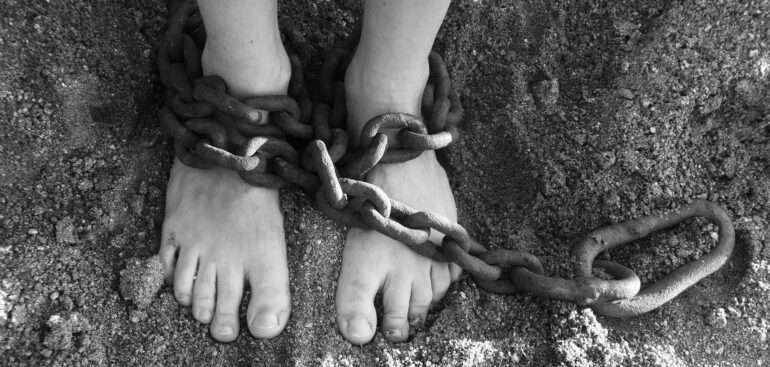On January 9, in the Korpur area of Sialkot, Punjab Province, Pakistan, 14-year-old Saneha Sharif, a Christian girl, was abducted from outside her home. Her father, Sharif Masih, lives with an unbearable fear that her abductors—five individuals, including two women—may forcibly convert her to Islam and marry her off to one of the suspects, Muhammad Dildar.
Masih, a humble sweeper and member of the Brethren Church, recalls the horrifying sequence of events. “Saneha was lured out of the house by a Muslim girl whose family had recently moved to our neighborhood,” he said. Witness accounts revealed that she was bundled into a van by the accused, one of whom was the mother of the girl who had befriended her.
This abduction is not an isolated incident but part of a pattern faced by Pakistan’s religious minorities. Masih said Dildar had been harassing his daughter for some time, but her steadfast rejection of his advances made her a target. Despite filing a police case immediately, only two accused—Samina Usman and Shabbir Ahmed—have been arrested. The remaining suspects, including Dildar, remain large, and the investigation has stagnated.
The agonizing two-week search for Saneha has left her family devastated. Masih’s wife has fallen seriously ill from the stress of her daughter’s disappearance, requiring repeated hospitalization. “The police are not making any sincere effort to recover my daughter,” Masih said. “We gave them phone numbers to trace Dildar, but they have done nothing.”
He believes their Christian faith and poverty are reasons for the authorities’ indifference. “We are very weak and can only plead with higher authorities to intervene and save our daughter,” he said, appealing to Punjab Chief Minister Maryam Nawaz and the police inspector general for justice.
This heartbreaking case has drawn widespread condemnation from human rights advocates. Christian attorney Lazar Allah Rakha stressed the need to pass a long-pending bill in the Punjab Assembly that would raise the minimum marriage age for both boys and girls to 18 years. “Minority girls are particularly vulnerable to such crimes,” Rakha said. Until the legal framework is strengthened, young girls will remain easy targets for predators under the guise of marriage.
The current legal minimum marriage age for girls in Pakistan is 16. However, Christian girls, once forcibly converted to Islam, fall under sharia law, which permits them to marry at a much younger age. Human rights advocates report that many abducted girls, some as young as 10, are forced into conversion and marriages and then subjected to sexual exploitation. Legal protections for such victims are either weak or entirely disregarded, leaving them trapped in cycles of abuse.
Judges in Pakistan often ignore birth certificates and other evidence of a minor’s age, siding with abductors by recognizing these illegal unions as legitimate marriages. In many cases, victims are coerced into giving false statements in favor of their captors, ensuring they remain with them.
The United Nations Human Rights Committee has repeatedly voiced alarm over the persistent abduction and forced marriage of girls from minority communities in Pakistan. In November 2024, the U.N. expressed grave concerns over the widespread impunity surrounding these crimes, urging the Pakistani government to take stronger action.
The committee’s report highlighted the severe trauma and abuse faced by victims, including forced conversions, sexual violence, and trafficking. It called for prompt and impartial investigations into such cases, ensuring perpetrators were brought to justice. The UN also emphasized the need for adequate shelters, psychological counseling, and rehabilitation programs for victims.
The tragic abduction of Saneha Sharif is not just a family’s nightmare—it is a reflection of the systemic failures to protect Pakistan’s vulnerable minority girls. It highlights the urgent need for legal reforms, stricter law enforcement, and a societal shift to uphold the rights and dignity of all citizens, regardless of faith.
Saneha’s father’s plea for justice resonates far beyond the borders of Pakistan. His words serve as a reminder that no family, no child, should endure such trauma and injustice. It is time for the Pakistani government and the international community to take definitive steps to end this cycle of suffering and impunity. Only then can we hope for a future where young girls like Saneha can live free from fear, with the rights and protection they deserve.
